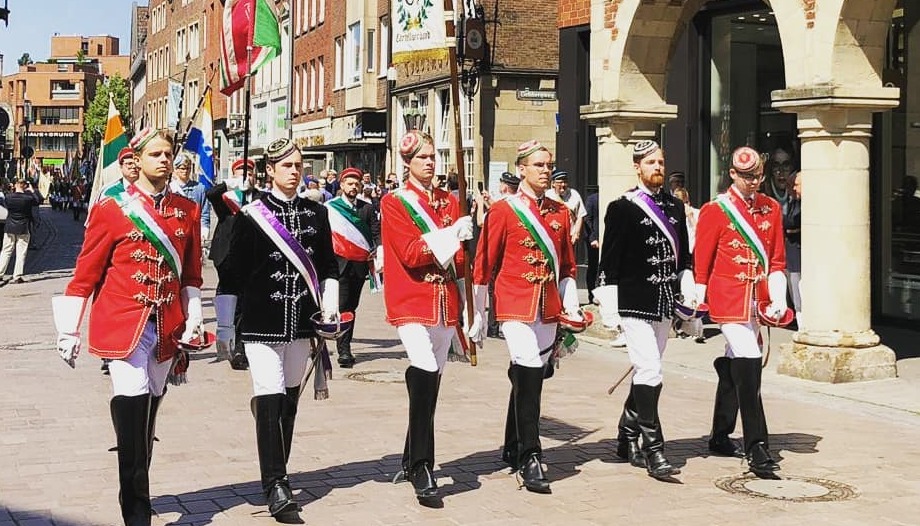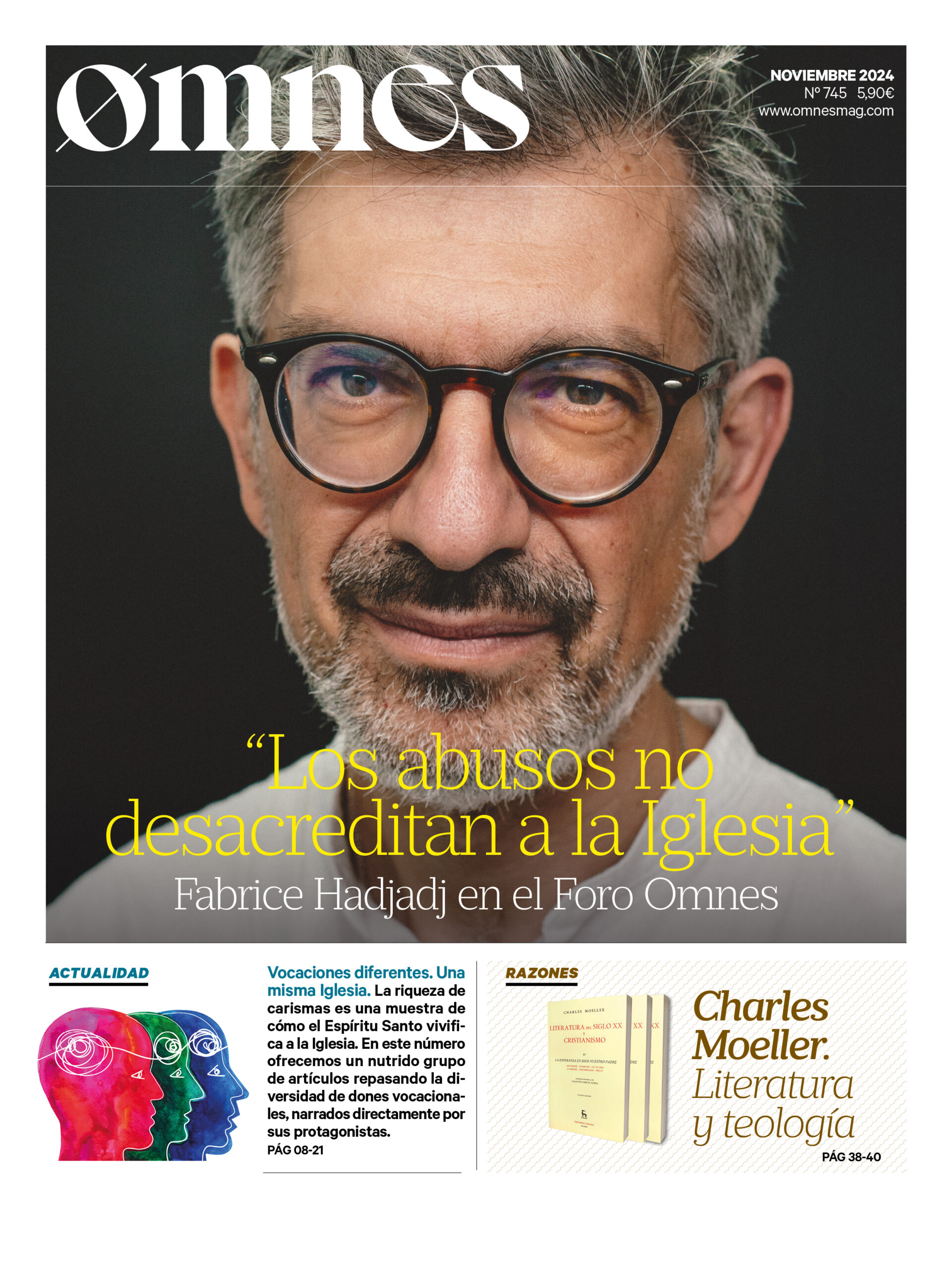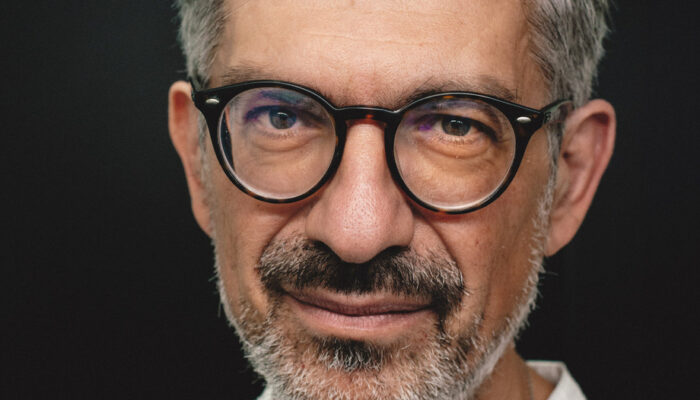"We cannot leave it to others to decide public opinion, but we must help to shape it: we must be more political, we must be bolder. With these words Nikodemus Schnabel OSB, Abbot of the Abbey of the Dormition of the Virgin Mary (Hagia Maria Abbey) in Jerusalem, addressed the participants in the annual assembly of the Cartellverband, a federation of German Catholic student associations, held recently in the German city of Fulda.
Schnabel criticized the increasing disintegration of civil society: "More and more people are convinced that they are on the side of the good guys, who also think they know exactly who the bad guys are. With this way of thinking, they feel so morally superior that they believe our legal system doesn't go with them." Abbot Schnabel continued, "Student associations must act where individual persons, out of a supposed moral superiority, oppose the common good.
A century-old history
Student associations - "Studentenverbindungen" (student unions) - are deeply rooted in Germany, although today only about one percent of university students belong to one. In the 19th and most of the 20th century, however, they were very popular as life-long "brotherhoods"; in fact, among the members they are called "Bundesbrüder" ("corporate brothers").
The corporations, which in turn are organized into different federations with very different characteristics, originated in the early 19th century, when nationalist sentiment spread after the "patriotic" or "liberation" wars against Napoleon.
Following these, many people hoped that the Congress of Vienna would bring about a return to the unity of the Holy Roman-Germanic Empire, overcoming the fragmentation into small states that had been taking place since the Thirty Years' War (1618-1648).
Although Prussia and Austria gained some formerly independent territories, the Congress of Vienna maintained the division of "Germany" into some 40 states.
To protest against this, some 500 university students gathered in 1817 at Wartburg Castle (near the Thuringian town of Eisenach) - considered a national symbol because Luther had taken refuge there in 1521/22. Although they had already been there on several occasions, the 1817 meeting was particularly symbolic because it marked the 300th anniversary of the Protestant Reformation.
The student guilds were primarily a Protestant phenomenon. The first Catholic associations of university students did not begin until 1844: coinciding with the exhibition of the "Holy Robe", a highly venerated relic in Trier, various Catholic associations were founded, among them the "Catholic Congress" ("Katholikentag") and also the so-called "katholische Studentenverbindungen" (Catholic student associations).
Although the "cultural combat" between the German Reich, and in particular Chancellor Otto von Bismarck, and the Catholic Church would not reach its climax until 1870, the fact remains that Prussia - despite the tolerance enjoyed by Catholics for most of its existence - conceived of itself as "Protestant" as opposed to Austria-Hungary, which was considered to be Catholic.
For this reason, when the first symptoms of the idea of relegating Catholics to the private sphere began to appear, Catholic associations arose to give them public visibility. It is in this context that the birth of the Catholic student associations is to be seen.
The Catholic associations were in turn grouped into three large "federations": "Unitas", the "Kartellverband" and the "Cartellverband". Without going into the differences between them - for example, "Unitas" was born as an association of theology students and was not opened to students from other faculties until 1887 - they all had in common that they experienced their first boom in the years before the First World War and that, unlike the Protestant organizations, they were generally opposed to the Nazi dictatorship, which was forced to dissolve them in 1938.
They experience a second moment of expansion after World War II; for example, Chancellors Konrad Adenauer and Kurt Georg Kiesinger will be proud to belong to the "Kartellverband", only to experience a noticeable decline in membership after the student revolution of 1968.
Student associations today
At present, as was said initially, they do not have the weight of past times; but they continue to take care of their traditions. For example, the "Unitas" federation describes its objective as "supporting its members to deepen their religious life, scientific formation and social commitment".
On the occasion of the assembly of the "Cartellverband" referred to at the beginning, its current president Simon Posert said that, although the number of members remains stable, "the willingness of young people to commit themselves has decreased.
In addition, the restrictions in recent years due to COVID have not made things any easier. Nevertheless, we are confident that we will continue to be an attractive place for university students." Regarding the impact that Catholic student associations can have on society, he commented: "The organization is not an activist as such, but we tend to bring together people committed to society, who have an impact especially in their direct environment.
Abbot Nikodemus Schnabel pointed out that the current situation of society encourages a rediscovery of the missionary character of the Church: there is no doubt that young university students can be found who want to follow the Catholic path of faith. She also criticized "the depressive atmosphere in the Church and in the ecclesiastical milieus". Looking at people like those in the "Central Committee of German Catholics" one can get the feeling that they almost apologize for continuing to exist. "Student associations have to take up the challenge to adopt a position based on their values: the Church is not dead. There is curiosity about the faith."
Simon Posert also believes that the "Catholic Church as an institution" is no longer in a position to teach the contents of the Catholic faith - the doctrine of Christ - to young people. "We are in a downward spiral, to which the Church has also contributed with abuses. The Church can provide support and give meaning, but it no longer fulfills this mission on a large scale.
The student associations, in spite of all their links, are not organizations of the ecclesiastical structures, so perhaps they can even live the faith in a more relaxed way. It starts with small things; for example, when students cook together and at mealtime bless the table, or when we attend Sunday Mass together. We also celebrate the beginning and end of each semester with a Mass. For us, the Catholic faith is the foundation that supports our values."








